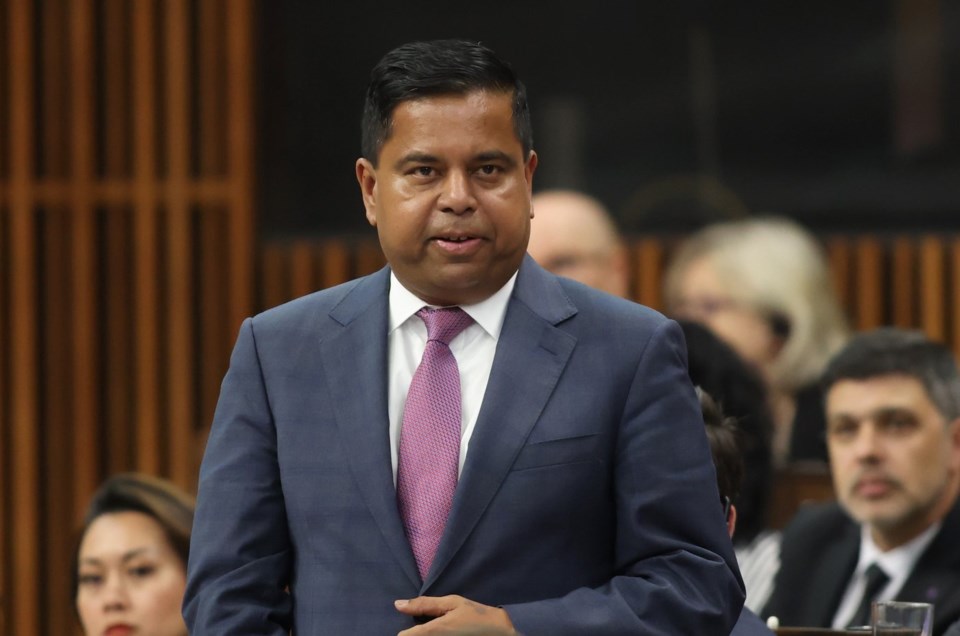OTTAWA — The Assembly of Manitoba Chiefs criticized the federal government for reducing funds to search the grounds of former residential schools, saying in a statement they are profoundly disappointed and outraged.
Communities could previously receive up to $3 million per year through the Residential Schools Missing Children Community Support Fund, but funding will now be capped at $500,000.
“The decision to cut back substantial funding for this critical initiative is not only disheartening but also disrespectful to the survivors and families affected by the residential school system,” said deputy grand chief Betsy Kennedy in a statement.
"The search for truth and justice must go forward without further delays or federal roadblocks, especially when it concerns the lost lives of our children."
The chiefs sent a letter to Crown-Indigenous Relations Minister Gary Anandasangaree asking for previous funding to be reinstated.
Ottawa said the funds were reduced in order to take a "sustainable approach" that provides money to as many community-led projects as possible.
The funding adjustments will not apply to previously signed agreements, a spokesperson for Crown-Indigenous Relations said in a statement Tuesday. The government also highlighted the $216 million it has put toward the community support fund since 2021.
That fund was created in the wake of Tk’emlups te Secwépemc First Nation's report in May of that year about 215 anomalies found on the grounds of a former residential school in Kamloops, B.C., reinvigorating the national conversation about the history and legacy of residential schools.
Residential schools, often operated by the Catholic Church with support from the federal government, were used as a tool to assimilate Indigenous Peoples into settler society, ripping thousands of children away from their families and cutting them off from their culture and language.
Dozens of reports from the period 1880 to 1996, when the schools operated, and afterward have highlighted the cruel fates of children in the institutions, including sexual and physical abuse, and, in some cases, death.
Those findings, among others, are encapsulated in the Truth and Reconciliation Commission's final report, released in 2015 after years of testimonies from survivors, community members and families.
The commission called for a memorial register that would analyze information about missing children and deaths, as well as creation of a map of cemeteries and burial sites.
Kennedy said the decision to cut funding without first speaking to First Nations leadership is a "missed opportunity" for Canada to strengthen relations and respect the rights of Indigenous Peoples.
The identification and commemoration of unmarked graves is "essential in honouring those lost, who deserve to be brought home to rest in ceremony among their loved ones," the assembly said.
"Finding and recovering those who have died while attending residential schools is critical in healing our nations. It is also an important step in acknowledging the full extent of the atrocities committed within the residential school system."
Crown-Indigenous Relations spokesperson Carolane Gratton said residential schools are a "shameful" part of Canada's history.
Her statement also highlighted $91 million in new money for the fund as outlined in this year's budget.
With the new funding model, Gratton said priority will be given to work that focuses on research, fieldwork in identifying potential burial sites and engagement with communities that have not yet begun research or fieldwork.
The National Centre for Truth and Reconciliation also blasted the federal government for cuts, saying it broke its commitment to families and communities.
“Communities engaged in the search process, and experts who have looked into the issue, have been saying that the federal funding mechanism is already too restrictive to properly meet real world needs,” executive director Stephanie Scott said in a release last week.
“This arbitrary funding cap is a step in exactly the wrong direction for reconciliation. What’s needed is sustained, long-term funding based on flexible criteria developed in collaboration with Indigenous Peoples.”
This report by The Canadian Press was first published July 23, 2024.
Alessia Passafiume, The Canadian Press




